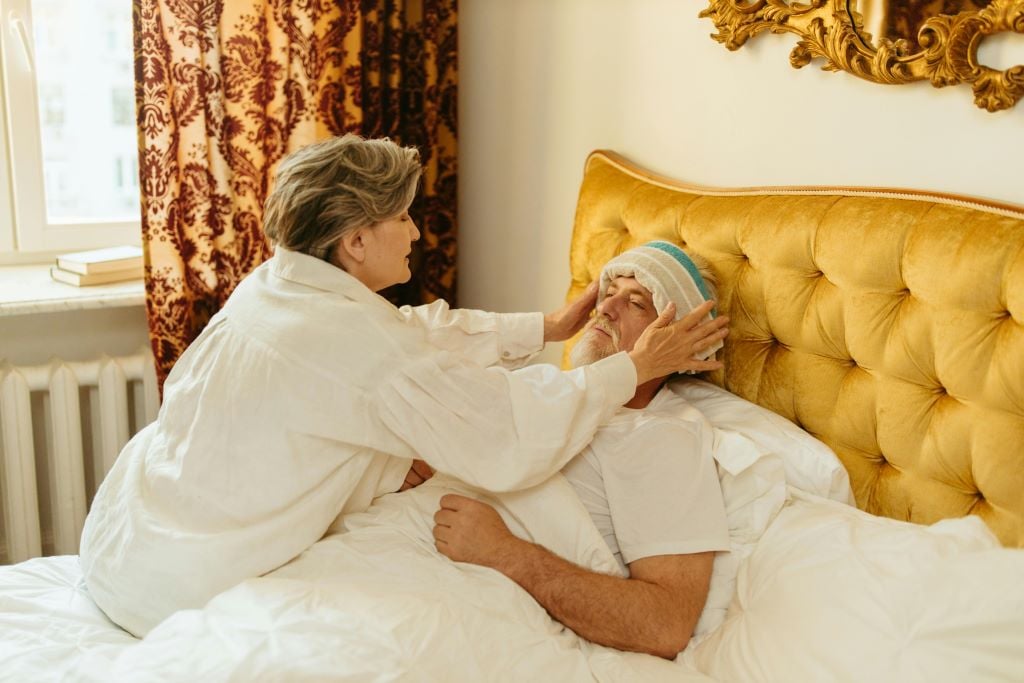Caring for a loved one is a demanding responsibility that requires dedication and patience, as well as a large measure of physical and mental strength. When that loved one is bedridden or homebound, totally or highly dependent on their caregiver, the demands of the role increase exponentially.
According to a Becker’s Hospital Review report, almost 2 million people were homebound in 2019. The 2020 figure was almost double that, but it was likely purely a result of Covid-19. Many of them rely entirely or very heavily on a caregiver and may even be permanently bedridden. Of the 53 million Americans serving as unpaid caregivers, according to the 2020 report by the National Alliance for Caregiving (NAC) and AARP, approximately 1 in 25 caregivers has a highly dependent patient.
In this guide, we explore the challenges faced by these caregivers. For purposes of the article, we will assume that a large proportion of homebound patients will be bedridden or spend a significant amount of time in bed or in a chair and that the challenges presented by both categories are similar. Consequently, for ease of reading, we will address the issues under the mantle of bedridden patients.
Unique Challenges of Caring for a Bedridden Patient
Physical Demands of Daily Care
A bedridden patient depends almost entirely on their caregiver for daily activities, including bathing, feeding, dressing, and repositioning. These activities require significant physical effort several times a day and proper technique to avoid injuries. This physical demand often leads to back pain or other musculoskeletal issues.
Emotional Strain
Both caregiver and patient are likely to experience significant emotional challenges. Patients often feel frustrated, helpless and isolated because they have to rely on others for their most basic needs. The caregiver, on the other hand, may become overwhelmed by the responsibility and feel the care they provide is inadequate. Some caregivers may resent the burden being placed on them. In both cases, this could lead to mental health issues like depression, anxiety or aggression.
Bedsores and Skin Complications
For bedridden or chairbound patients, the risk of developing pressure ulcers (bedsores) is particularly high. Bedsores are caused by prolonged pressure on the skin from staying in one position for extended periods, and they can be painful and lead to infections. According to an Agency for Healthcare Research and Quality (AHRQ) study, over 2.5 million people in the U.S. develop pressure ulcers each year, with bedridden patients being especially vulnerable.
Impact of Isolation and Lack of Stimulation
With total or near-total mobility impairment, bedridden patients are highly prone to becoming isolated. This can lead to loneliness and emotional decline. Quoting a report by CNN Health, “People who experienced social isolation had a 32% higher risk of dying early from any cause compared with those who weren’t socially isolated.”
Financial Strain of Caregiving
Caregiving brings with it a whole host of additional expenses that can cause financial strain. Families may need to cover expenses for medical supplies, adaptive equipment, and additional in-home care support. Family caregivers frequently balance employment and caregiving, but in extreme cases, such as with a bedridden patient, they may have to reduce work hours or quit their jobs. This directly impacts household income and adds to the financial burden of the additional expenses
Compounded Challenges and Their Impact on the Caregiving Relationship
The challenges faced by both patient and caregiver are mutually reinforcing, potentially leading to a compounded effect on the relationship. The physical and emotional toll on the caregiver can lead to extreme exhaustion or burnout, which impairs their ability to provide quality care. The patient may feel guilty or stressed by the caregiver’s strain, further impacting their emotional state. This can turn into a self-fueling cycle that gradually leads to greater and greater frustration on both sides.
Mitigating Compounded Challenges
Prioritize Self-Care. Caregivers often put the patient’s needs before their own, risking physical and mental exhaustion or burnout. Self-care is essential to avoid this. Simple things like taking breaks, exercising, and maintaining a balanced diet can help caregivers stay physically and mentally strong.
Enlist Help and Delegate. Although most caregivers do everything themselves, the additional demands of a bedridden patient mustn’t be underestimated. Engaging family members or close friends or hiring part-time professional help will reduce the burden. Even short respite breaks, where another caregiver takes over for a few hours, can make a significant difference.
Set Boundaries. It’s important to discuss boundaries clearly and openly with your patient and other family members. Make sure everyone understands and accepts the challenges you face and what your limits are. Equally important, you have to enforce those limits to ensure the line doesn’t gradually become blurred.
Celebrate Small Wins. Caregiving can sometimes feel like a never-ending rollercoaster, looping over and over, with no chance to get off. Focusing on the progress you make, no matter how small, can be rewarding. Recognize the improvements you’re contributing to, whether it’s the patient’s comfort, better health, or a moment of shared laughter.
Conclusion
Caring for a bedridden patient is one of the most compassionate and challenging roles one can undertake. For family caregivers, it requires patience, resilience, and a constant balancing act between physical tasks and emotional support. Each day may bring its unique set of challenges, but the work you do as a caregiver is invaluable, bringing comfort, companionship, and dignity to your loved one.
At LL Medico, we have a deep understanding of the challenges faced by caregivers. We have been operating in the field of senior care products for 30 years now, and we have helped thousands of caregivers ease the stress of managing their care supplies. With a vast range of products at competitive prices and our Autoship feature, we can keep your supplies cabinet optimally stocked without blowing your budget.
Whether you need adult diapers, skincare or wound care products , the experienced team at LL Medico can discuss your needs with you and help you select the best options. Delivery takes one to three days and is free in the continental US. Don’t hesitate, call us today at (855) 422-4556 or email support@llmedico.com.
The caregiving journey isn’t easy, especially if your patient is immobilized. However, by making use of available support and resources and taking time to look after yourself, you can stand up to the challenge. Remember, you’re not alone, and it’s okay to ask for help and take breaks. As Maya Angelou said, “I can be changed by what happens to me, but I refuse to be reduced by it.” Embrace your strength, recognize your contributions, and know that your care has the power to make a profound difference. My Call to Action






 855-422-4556
855-422-4556 Chat
Chat E-Mail
E-Mail Monday - Friday 9:00AM to 5:00PM EST
Monday - Friday 9:00AM to 5:00PM EST






 Shopping With LL Medico
Shopping With LL Medico



 855-422-4556
855-422-4556